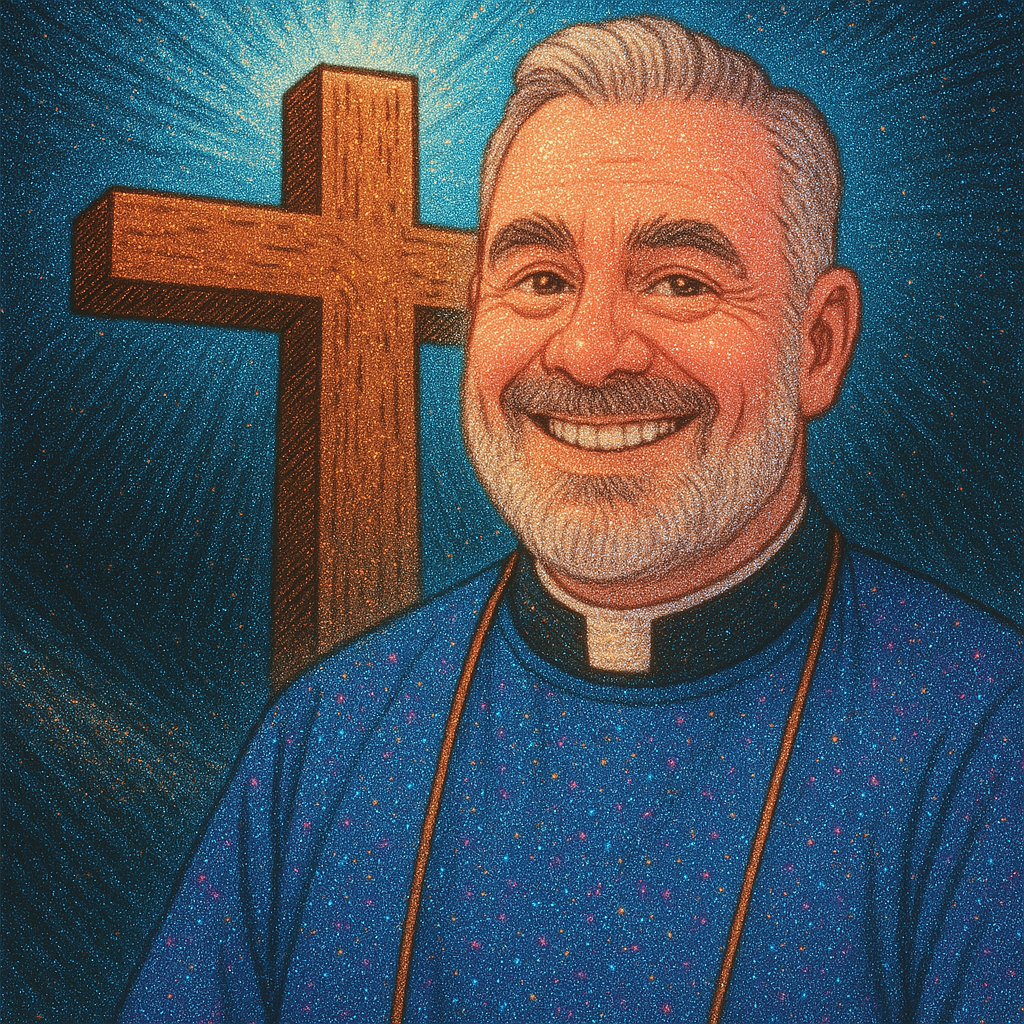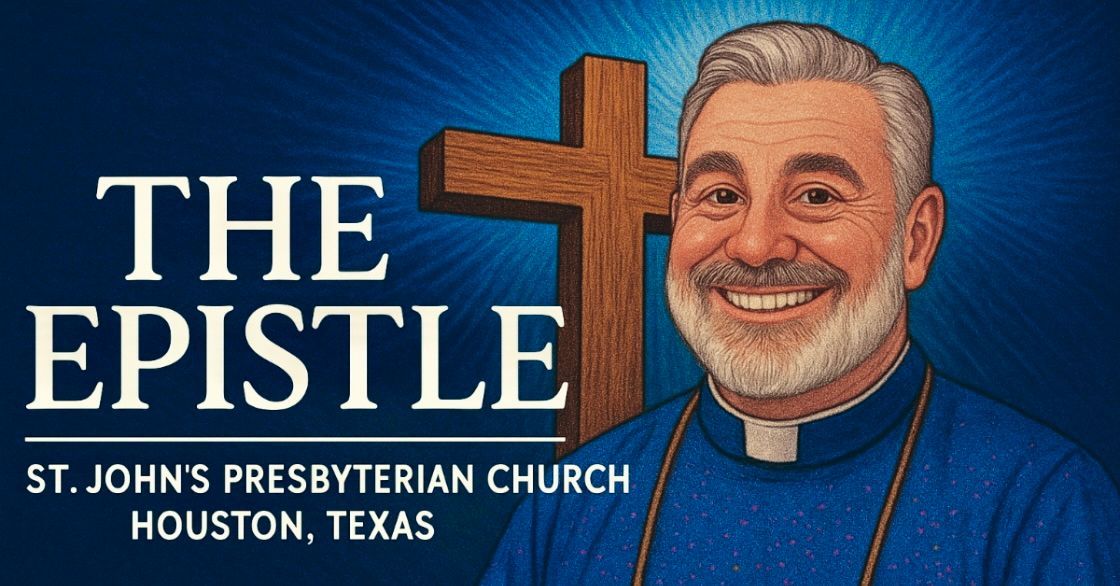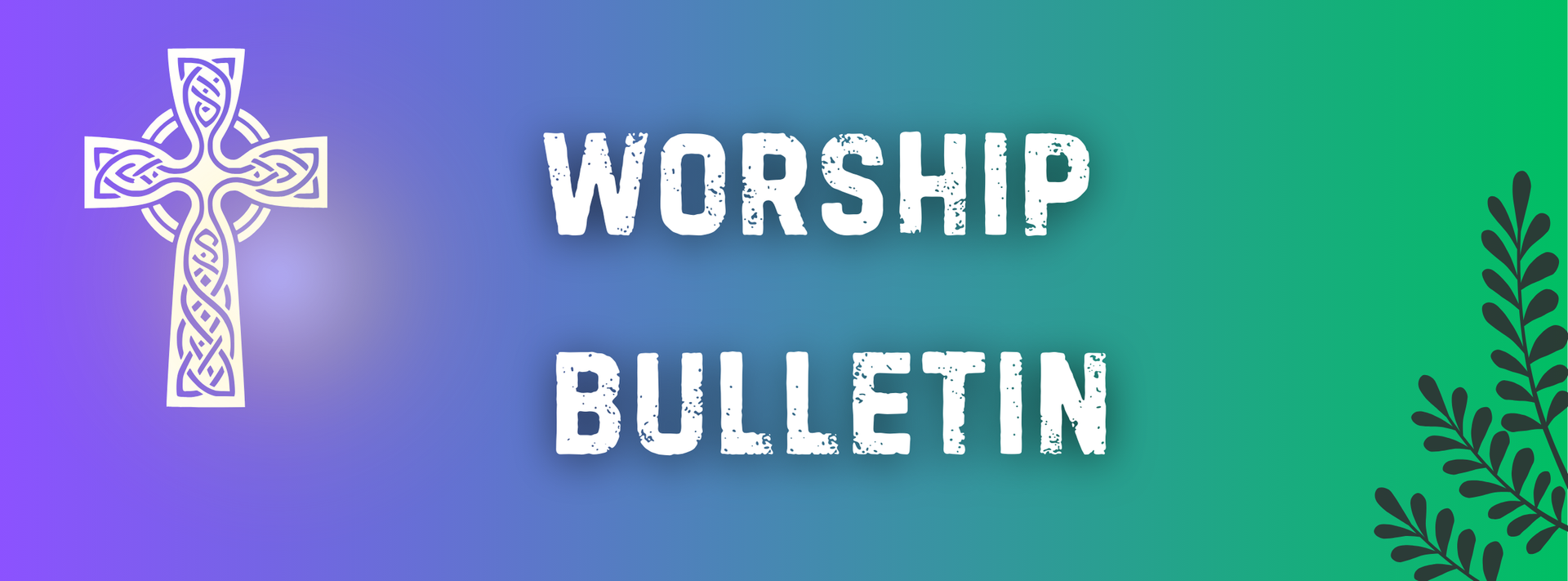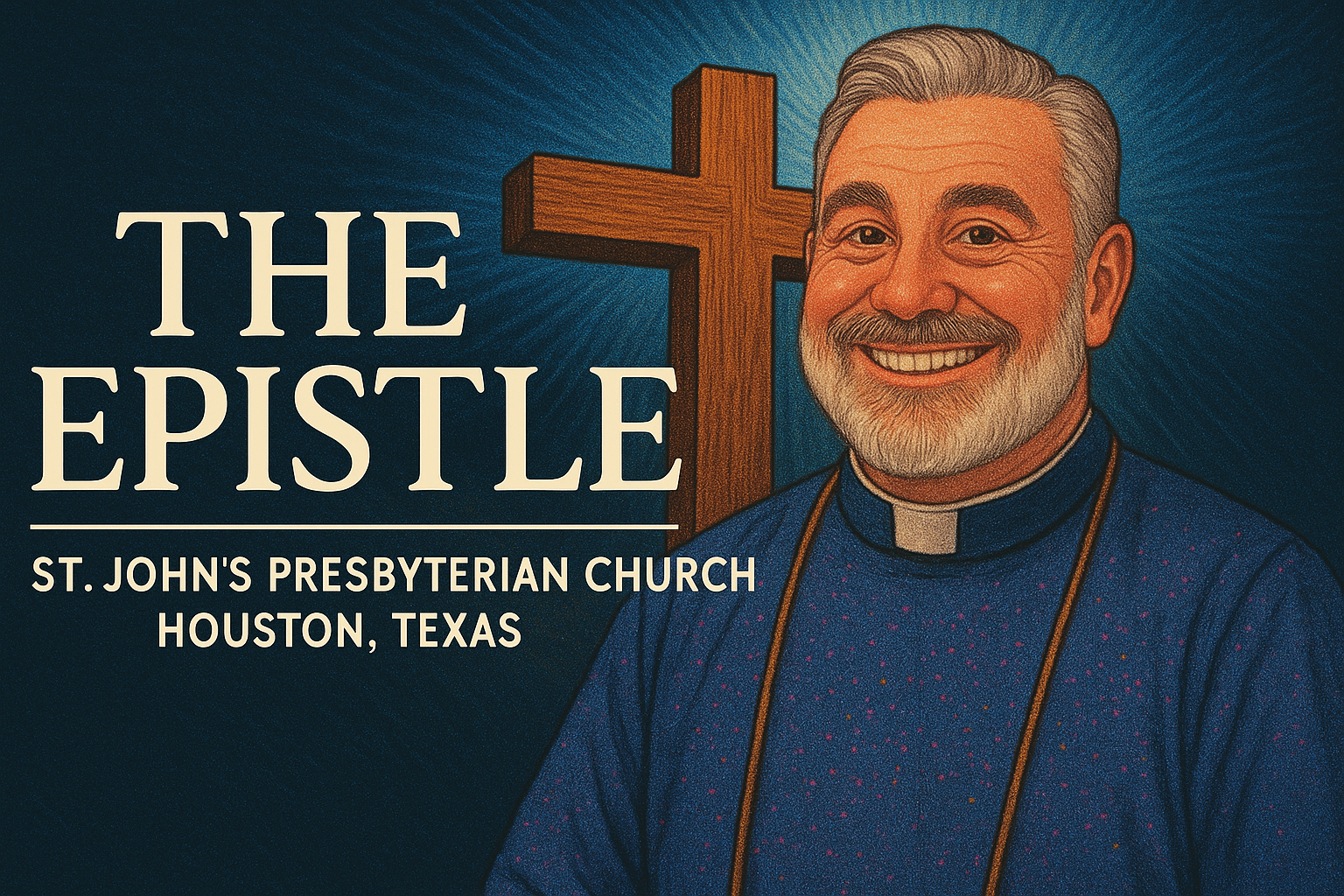Presbyterian Predestination Explained: What It Means and Why It Matters
The question usually comes up during coffee hour after worship, or in a Bible study when we're reading Romans 9, or late at night when someone's wrestling with whether their prayers actually matter.
"Pastor Jon,
if God already knows what's going to happen, do my choices even count?"
"If everything's predestined, why pray?"
"Does predestination mean God picks some people for heaven and some for hell before they're even born?"
I've been a Presbyterian pastor long enough to know these aren't just theological puzzles people enjoy debating. These are real questions about whether their lives have meaning, whether God is fair, and whether faith makes any practical difference in a world that often feels like it's running on autopilot.
Let me try to untangle this ancient doctrine in a way that actually makes sense for regular people trying to follow Jesus in Houston in the 2020s and beyond. Because here's the thing:
predestination isn't about fatalism or cold determinism. When you understand what Presbyterians actually believe about God's sovereignty and human choice, it becomes a source of deep comfort rather than confusion.
What Predestination Actually Means (In Plain English)
Let's start with what the word means. Predestination simply refers to God's plan and purpose for creation and for individual lives.
Presbyterians believe that
God, being outside of time and all-knowing, has a sovereign plan for history and for each person.
But here's where people get confused. Predestination doesn't mean you're a robot following a script. It doesn't mean your choices don't matter. And it definitely doesn't mean God created some people just to damn them.
Think about it this way. When my kids were little, I knew certain things about their future before they did. I knew my daughter would eventually learn to ride a bike, even when she was falling off every five seconds. I knew my son would struggle with math in middle school because I understood his learning style. Did my knowledge of these future events mean they didn't really happen? Did it mean my kids weren't really choosing and growing and learning?
Of course not. My limited foreknowledge didn't negate their experience or choices. God's perfect foreknowledge works the same way, just infinitely more so.
The Reformed tradition (that's the theological family Presbyterians belong to) teaches that
God's sovereignty and human responsibility exist together. We can't fully explain how they fit because we're finite creatures trying to understand an infinite God. But Scripture teaches both truths clearly: God is in complete control, and humans make real choices for which they're genuinely responsible.
This might sound like a contradiction, but only because we're used to thinking in either-or categories. God's ways are higher than our ways. Some mysteries we simply have to hold in tension.
What Predestination Is NOT
Before we go further, let's clear up some common misunderstandings.
Predestination is not the same as fate. In Greek mythology or ancient philosophy, fate was an impersonal force that even the gods couldn't escape. It was cold, mechanical, uncaring.
Presbyterian predestination is the exact opposite.
It's the loving plan of a personal God who knows you by name, who numbers the hairs on your head, who sent his Son to die for you.
God's plan isn't impersonal fate. It's intimate purpose.
Predestination also isn't fatalism. Fatalism says, "Whatever will be will be, so why bother trying?" That's not biblical Christianity. Scripture constantly calls us to choose, to act, to pray, to repent. The
Westminster Confession (one of our key Presbyterian documents) is crystal clear: God's sovereignty doesn't destroy human will or take away the reality of our choices.
And here's a big one:
predestination doesn't mean God creates people just to send them to hell. That's a horrible distortion of what we actually believe. God desires all people to be saved. He sent Jesus to die for the whole world. When people reject God's grace, that's their choice, not God's predetermined plan for them.
Some folks want to turn predestination into a cosmic sorting machine where God arbitrarily picks favorites before anyone's even born. That's not what Scripture teaches. What the
Bible shows us is a God who pursues people, who invites everyone into relationship, and who in his perfect knowledge sees who will respond to his grace and who will resist it.
How This Differs From Eastern Ideas About Karma
I've had interesting conversations over the years with folks exploring Buddhism or Hindu philosophy alongside Christianity. Houston's a diverse city, and people are genuinely curious about different wisdom traditions. Naval Ravikant, that Silicon Valley entrepreneur, captured one version of Eastern thinking when he wrote: "Karma is just you, repeating your patterns, virtues, and flaws until you finally get what you deserve."
There's something appealing about that idea. It suggests a kind of cosmic justice where your actions eventually catch up with you. Do good, good comes back. Do bad, bad returns. It's tidy. It makes sense to our human desire for fairness.
But it's fundamentally different from Christian predestination.
Karma is about getting what you deserve based on your actions, either in this life or through reincarnation. It's a moral accounting system where the universe keeps score and eventually balances the books.
Presbyterian predestination is about grace, not karma. We don't believe you get what you deserve. Thank God! If we got what we deserved based on our flaws and repeated patterns, we'd all be in serious trouble. Instead, we believe God extends undeserved favor through Jesus Christ. That's what grace means.
The difference matters.
Karma puts the weight on you. Your fate depends on your accumulated actions over multiple lifetimes. You're responsible for earning your way to enlightenment or a better rebirth through right living and right thinking.
Christianity says you can't earn your way anywhere. Your best efforts fall short. Your patterns and flaws don't just need adjustment, they need redemption. And God provides that redemption as a gift through Jesus. Not because you've finally accumulated enough good karma, but because God loves you and chooses to rescue you.
Under karma, you repeat patterns until you deserve better.
Under grace, God breaks the patterns you can't break yourself and gives you what you don't deserve: forgiveness, new life, adoption into God's family.
That's the scandal of Christian faith. God doesn't wait for you to finally get your act together. He meets you in your mess, your repeated failures, your persistent flaws, and says, "I'm choosing you anyway." That's predestination: God's choice to love and redeem people who couldn't earn it and don't deserve it.
Buddhist Suffering vs. Presbyterian Sovereignty
The comparison with Buddhism gets even more interesting when you look at the concept of suffering.
Buddha taught that suffering (dukkha) is essentially an illusion created by our attachments and desires.
We suffer because we cling to impermanent things and fail to recognize the true nature of reality. Enlightenment comes through letting go of attachments and realizing that the separate self is an illusion.
From this perspective, what we think of as real suffering is actually a misperception. If you could see reality clearly, you'd realize that neither suffering nor the self experiencing it is ultimately real. It's all part of the illusion (maya) we need to see through.
Presbyterian theology takes suffering with absolute seriousness as a real feature of a fallen world.
We don't believe suffering is an illusion you overcome through proper understanding. We believe it's a genuine result of sin's entry into God's good creation. Pain is real. Death is real. Injustice is real.
These aren't misperceptions to be dissolved through meditation.
But here's where predestination becomes profoundly comforting rather than disturbing. If suffering is real, and if the world often feels chaotic and random, how do we find hope?
Presbyterian faith says that even in a world scarred by sin, God remains sovereign. Nothing happens outside his awareness or ultimate plan.
This doesn't mean God causes every bad thing. We live in a fallen world with real consequences for human sin and rebellion. But it does mean that God is big enough to work within and through even the worst circumstances to accomplish his purposes.
Romans 8:28 captures this: "We know that in all things God works for the good of those who love him, who have been called according to his purpose."
The Buddhist solution to suffering is to realize it's not ultimately real. The Presbyterian response is to trust that the God who is real will redeem real suffering and bring real good from it. We don't escape suffering by seeing through it. We endure suffering by trusting the One who suffered on a cross for us.
Joseph said it perfectly to his brothers who'd sold him into slavery: "You intended to harm me, but God intended it for good to accomplish what is now being done, the saving of many lives." That's predestination in action. Not God causing evil, but God sovereignly working even through evil human choices to accomplish redemptive purposes.
When Karma Meets Grace: Understanding the Difference
Let's come back to that Naval quote: "Karma is just you, repeating your patterns, virtues, and flaws until you finally get what you deserve."
There's real insight there about human nature.
We do repeat patterns. We do have persistent virtues and flaws.
Anyone who's tried to break a bad habit or overcome a character flaw knows how hard change is. We cycle through the same mistakes, the same temptations, the same failures.
But the promise of the gospel is that you don't have to keep repeating patterns until you deserve better. Christ breaks the cycle. He doesn't wait for you to finally get your karma balanced. He steps into your repeated failures and says, "I've already paid for this. You're free."
This is where Presbyterian predestination becomes intensely personal and practical. God's choice to save you isn't contingent on you finally getting your patterns right. His choice precedes your patterns. Before you were born, before you developed virtues or flaws, before you started repeating destructive cycles, God knew you and loved you.
Ephesians 1:4-5
says it clearly: "He chose us in him before the creation of the world to be holy and blameless in his sight. In love he predestined us for adoption to sonship through Jesus Christ." That's not karma. That's grace operating on an entirely different principle.
Under karma, you're on your own, working off your debt to the universe through countless cycles until you finally achieve what you deserve. Under predestination, God reaches into your cycles of repeated failure and lifts you out, not because you deserve it but because he decided to love you.
The freedom this brings is hard to overstate. You're not trapped in endless cycles hoping to eventually tip the cosmic scales toward enlightenment.
You're already chosen, already loved, already secured by a God who knows every flaw and failure and says, "You're mine."
This doesn't mean Christians stop trying to grow or change. Of course we work on our patterns and flaws. But we do it from a place of security, not anxiety. We change not to earn God's love but because we already have it. Not to achieve our predestined purpose but to live out the new identity God has given us.
Living With Predestination: Why Your Choices Still Matter
Here's where rubber meets road. If God's already determined everything,
why bother praying? Why evangelize? Why work for justice or serve your neighbor?
These questions feel compelling, but they miss how predestination actually works. God's sovereign plan includes the means as well as the ends. He doesn't just determine that someone will come to faith. He also ordains the sermon they'll hear, the conversation with a friend, the Bible passage that speaks to them. Your witness becomes part of God's sovereign plan.
Think of it like a symphony.
God is the composer who's written every note. But he's written your part for you to play. The fact that the composition is complete doesn't mean your violin doesn't matter. You're essential to how the music actually sounds.
Prayer works the same way. God already knows what will happen, yes. But he's ordained that certain things happen through prayer.
James 4:2 says, "You do not have because you do not ask God." Prayer isn't about changing God's mind. It's about aligning ourselves with his purposes and becoming the instruments through which he works.
I've counseled people through tragedies who found immense comfort in predestination.
When a young mother dies of cancer, leaving three kids behind, karma offers no consolation. The universe doesn't care. Your patterns and virtues didn't protect you. But sovereignty says: even this horror, even this senseless pain, is not outside God's awareness or his ability to redeem. He can bring good from even the worst evil. He's done it before at the cross.
That doesn't make the pain less real or less terrible. But it means
you're not alone in random chaos.
You're held by a God who sees, who cares, who has a plan that includes redemption and restoration.
Where AI Meets Ancient Theology
I
wrote a whole book about this called
Because You Had To: AI, Predestination, and the Sovereignty of God. The connection might not be obvious at first, but stay with me.
We live in an age where artificial intelligence can predict human behavior with startling accuracy. Netflix knows what you'll want to watch next. Amazon knows what you'll buy before you do. AI algorithms can forecast your choices based on your patterns with remarkable precision.
This raises profound questions.
If a machine can predict your behavior, how free are you really?
If your choices follow predictable patterns, are you actually choosing or just following your programming?
These same questions haunted theologians centuries ago when they wrestled with predestination.
How can God know your future choices and they still be real choices?
How can divine sovereignty and human freedom coexist?
The answer, I think, comes from understanding that
knowledge doesn't equal causation. When Netflix predicts what you'll watch, it's not making you watch it. It's recognizing patterns in your preferences and behavior. Similarly, God's perfect foreknowledge doesn't eliminate your real choices. It just means God, being outside time, sees all your choices at once.
But here's where it gets interesting.
AI can only predict based on patterns. It can't account for genuine transformation, for moments of grace that break the patterns entirely. Algorithms assume you'll keep being who you've always been.
God predestines not your failure but your restoration.
God's predestination is different. It includes your transformation. God doesn't just see you stuck in your patterns. He sees the new creation he's making you into.
God predestines not your failure but your restoration. Not your slavery to patterns but your freedom in Christ.
If you want to go deeper into these questions about how AI, free will, and divine sovereignty intersect, I'd encourage you to check out Because You Had To: AI, Predestination, and the Sovereignty of God. It's written for regular people wrestling with big questions, not just theology nerds. And in our AI-saturated age, these questions matter more than ever.
What This Means for You Today
Let me bring this home with some practical takeaways. If Presbyterian predestination is true, here's how it should affect your actual life:
- First, it gives you deep security. Your relationship with God doesn't depend on maintaining perfect faith or never doubting. If God chose you before the foundation of the world, your salvation rests on his choice, not your consistency. You can rest in his grip rather than constantly checking your spiritual pulse.
- Second, it fuels genuine humility. If salvation is entirely grace and God's choice, you have nothing to boast about. You didn't earn this. You didn't achieve it through superior wisdom or spiritual discipline. God chose you. That should make you grateful, not proud.
- Third, it motivates mission and service. Because you know God's plan will accomplish his purposes, you can work with confidence. You're not trying to force outcomes or save the world through your efforts alone. You're participating in what God is already doing. That removes anxiety and adds purpose.
- Fourth, it provides comfort in suffering. When life falls apart and nothing makes sense, predestination says God hasn't lost control. He's still sovereign. He's still working. What feels like chaos to you fits into a plan you can't see yet but can trust.
- Fifth, it takes pressure off. You don't have to be God. You don't have to control outcomes or manipulate circumstances or make everything work out. You can do your part faithfully and leave results to God.
An Invitation to Trust, Not Decode
I'll be honest. I can't fully explain how God's sovereignty and human responsibility fit together. I can't completely untangle predestination and free will. Smarter theologians than me have tried for 2,000 years and we're still having the conversation.
But here's what I've learned through years of pastoral ministry:
the people who find the most peace aren't the ones who've got all the theology figured out. They're the ones who've learned to trust a God bigger than their understanding.
Predestination ultimately isn't a puzzle to solve.
It's an invitation to rest in a God who has a plan, who knows what he's doing, and who loves you enough to choose you before you ever chose him.
At
St. John's Presbyterian Church in Houston, we wrestle with these questions together. We don't pretend to have perfect answers. We don't shame people for doubting or questioning. We create space for honest wrestling with hard theological truths in a community where you're known and supported.
We study Scripture seriously. We think about faith thoughtfully. We hold tension honestly. And we rest in grace constantly. That's what Presbyterian community at its best looks like. Not a place where everything's tied up neatly with a bow, but a place where real people grapple with real questions while trusting a real God who's bigger than our confusion.
If you're in
Houston and these questions resonate with you, come visit us on
Sunday morning at 11 AM. We won't have all your answers. But we'll have good coffee, genuine conversation, and a community of people who've learned that the deepest questions often lead to the deepest faith.
Because here's the paradox:
the more you understand that God's ways are higher than your ways, the more you find peace.
The more you accept that some mysteries can't be fully solved, the more you grow in trust. The more you realize salvation depends on God's choice rather than yours, the more secure you become.
That's not karma. That's not fate. That's not illusion. That's grace operating through a sovereign God who knows your repeated patterns, your persistent flaws, your deepest failures, and says, "I chose you anyway. Not because you deserve it, but because I love you. That's been decided. That's been predestined. That's settled. Now rest in that and see how it changes everything."
Going Deeper
If these ideas have sparked your curiosity or challenged your thinking, here are some ways to explore further:
Read my book: Because You Had To: AI, Predestination, and the Sovereignty of God goes much deeper into how ancient theology meets modern technology and what it all means for living faithfully today.
Join our Bible study: We regularly dig into passages that wrestle with God's sovereignty, including Romans 8-9, Ephesians 1, and Jesus' teachings on election. There's no substitute for reading Scripture together with people who care about getting it right and living it out.
Visit St. John's: Experience Presbyterian worship that takes these doctrines seriously without being stuffy about them. We believe theology matters, but we also believe it should lead to practical faith that transforms how you live Monday through Saturday.
Keep questioning: Good theology raises new questions as it answers old ones. That's healthy. God is big enough to handle your doubts. The goal isn't perfect understanding but growing trust in a God who understands everything perfectly.
The doctrine of predestination has brought comfort to millions of Christians over centuries. Not because it makes everything clear, but because it reminds us that we're held by a God whose plans can't be thwarted, whose love can't be lost, and whose purposes will ultimately prevail.
In a world that often feels chaotic and random, where algorithms predict your behavior and patterns repeat endlessly,
Presbyterian theology offers something different:
a sovereign God who breaks patterns, extends undeserved grace, and has chosen to love you since before time began.
That's not fatalism. That's not karma. That's the scandalous good news of the gospel. God chose you. God loves you. God has a plan for you. And nothing in all creation can separate you from that love.
Rest in that. Trust in that. Live from that. And watch how it changes everything.
St. John's Presbyterian Church
5020 West Bellfort Avenue
Houston, Texas 77035
(713) 723-6262
stjohns@stjohnspresby.org
Sunday Worship: 11:00 AM
Everyone welcome.
Honest questions encouraged.
Peace,
Pastor Jon Burnham





